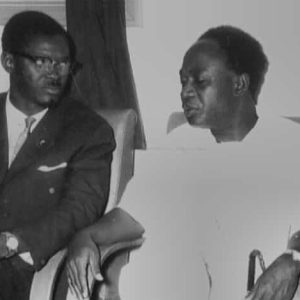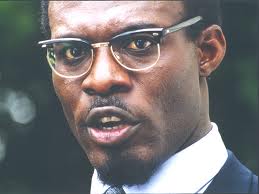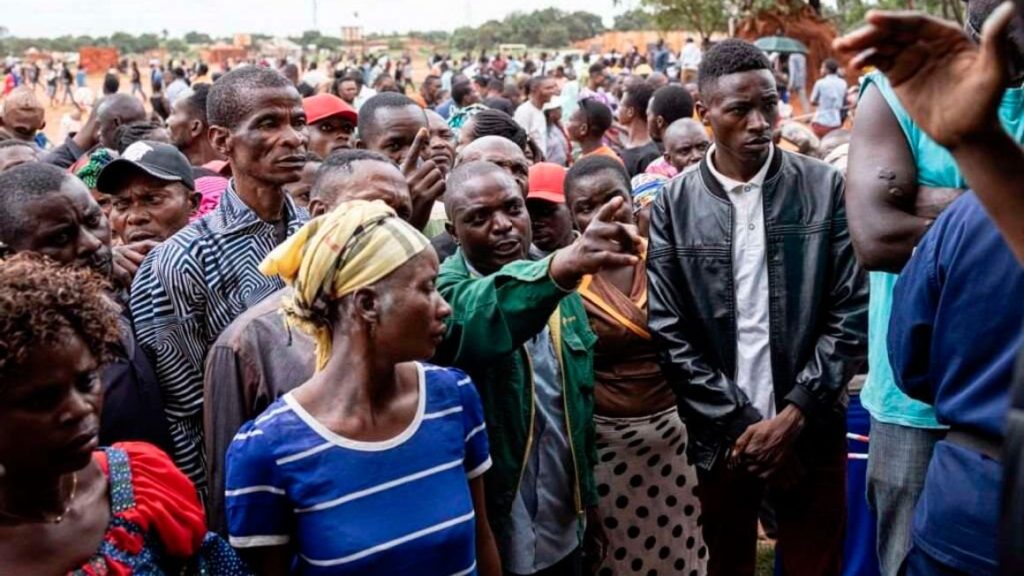Africa in Review 2023: Electoral Politics and Regional Stabilization
From the Democratic Republic of Congo to the entire continent, the questions of governance remains unresolved amid the aggressive posture of imperialism

All Global Research articles can be read in 51 languages by activating the Translate Website button below the author’s name (only available in desktop version).
To receive Global Research’s Daily Newsletter (selected articles), click here.
Click the share button above to email/forward this article to your friends and colleagues. Follow us on Instagram and Twitter and subscribe to our Telegram Channel. Feel free to repost and share widely Global Research articles.
***
“2023 has been a challenge for Global Research, but we know 2024 will be no different. That’s why we need your support. Will you make a New Year donation to help us continue with our work?”
*
On December 20 the Democratic Republic of Congo (DRC) held national multi-party elections in a country with a population of approximately 100 million people.
Popularly known in the past as the “Heart of Congo”, the DRC is one of the richest areas in the world regarding its strategic minerals and metals along with vast swaths of rainforests and arable land.
However, despite the wealth in natural resources, a large section of the population remains mired in poverty and insecurity. Multinational mining firms and financial institutions which facilitate their operations dominate the economy of the country like so many others across the continent.
Official results from the elections indicate that incumbent President Felix Tshisekedi is heading towards being declared the winner. There are opposition parties which have already declared the elections as fraudulent, prompting demonstrations against the administration.
The government has prohibited any protest actions related to the results of the vote calculations and criticism of the process. Some news reports claim that dozens have already been killed and injured in election-related violence.
There are several historical factors which have contributed to the current political situation in the DRC. Since its national independence from Belgium in June 1960, the former colonial power, the United States and other imperialist powers sought to undermine and subvert the trajectory being established by the first democratically elected Prime Minister Patrice Lumumba and his party known as the Congolese National Movement (MNC).
 Lumumba was heavily influenced by the national liberation and Pan-Africanist political currents which took control of their governments from imperialism during the late 1950s. When the Ghana government under the Convention People’s Party (CPP) and its then Prime Minister Dr. Kwame Nkrumah convened the First All-African People’s Conference in Accra in December 1958, Patrice Lumumba (image right) was in attendance along with more than 60 other political parties and mass independence movements. Figures such as Guinean President Ahmed Sekou Toure, Frantz Fanon of the Algerian National Liberation Front (FLN), Tom Mboya of the trade union movement in Kenya, among others played important roles during this period of transition from colonialism to emergent independent states.
Lumumba was heavily influenced by the national liberation and Pan-Africanist political currents which took control of their governments from imperialism during the late 1950s. When the Ghana government under the Convention People’s Party (CPP) and its then Prime Minister Dr. Kwame Nkrumah convened the First All-African People’s Conference in Accra in December 1958, Patrice Lumumba (image right) was in attendance along with more than 60 other political parties and mass independence movements. Figures such as Guinean President Ahmed Sekou Toure, Frantz Fanon of the Algerian National Liberation Front (FLN), Tom Mboya of the trade union movement in Kenya, among others played important roles during this period of transition from colonialism to emergent independent states.
After winning the largest bloc of votes in the June 1960 elections, a series of events occurred leading to mutinies within the Belgian-dominated security forces; the house arrest of Lumumba by the United Nations Peacekeeping Forces which had been invited into the Congo by the MNC government; Lumumba’s flight to the eastern region of the country; and the eventual capture, torture and execution of the prime minister and two of his cabinet members by the Belgians, the Central Intelligence Agency (CIA) and their agents under the supervision of Mobuto Sese Seko and Moise Tshombe.
Mobutu’s control of the country beginning in October 1960, later named Zaire, continued the process of economic exploitation of the land and labor of the Congolese people. When Mobutu was overthrown in May 1997, Laurent Kabila, a former fighter with the Lumumba forces, became the head-of-state. However, the fallout between Kabila and the governments of Rwanda and Uganda led to a protracted military conflict which lasted from 1998-2003. The intervention of Rwanda and Uganda prompted the deployment of tens of thousands of troops from the Southern African Development Community (SADC) led by Zimbabwe, Namibia and Angola.
A negotiated resolution to the war after 2003 brought about the involvement of UN peacekeepers and the eventual joining of the SADC by the DRC. Over the last two decades the instability in the eastern DRC has continued.
At present the two most formidable rebel groupings, the M23 and Allied Democratic Forces (ADF), continue to terrorize the population. The M23 has been accused of enjoying support from neighboring Rwanda while the ADF, which has its origins in Uganda, is patterned on the ISIS-affiliated organizations which arose in West Asia more than a decade ago.
Consequently, the further fracturing of the political parties contesting the recently held elections does not bode well for the future stability of the DRC. In a report published by Al Jazeera it says:
“The vote has been marred by accusations of corruption and chaotic organization since it kicked off on Wednesday, with authorities extending the poll into Thursday after some polling stations failed to open and some voters could not find their names on registers. While electoral authorities officially extended the vote only until Thursday, ballots were still being cast on Saturday in remote areas. The unscheduled extension prompted fierce pushback from opposition candidates, some of whom labelled the move unconstitutional and called for a new election.”
Until the crises of governance in the DRC can be effectively resolved in the interests of the majority of working people, farmers and youth, the heart of Africa will continue under severe duress. An emphasis on Pan-African unification and socialism provides the only pathway towards genuine freedom and social emancipation.
SADC and Political Unity
The Southern African Development Community (SADC) was founded in 1992 in the newly independent Republic of Namibia. Previously known as the Southern African Development Coordination Conference (SADCC), founded in 1980 in Zambia, this sub-continental organization grew directly out of the necessities of the struggle against white-minority rule in the region during the 1980s and early 1990s.
After the overthrow of the apartheid system in South Africa in April 1994, the SADC region was poised to make progressive strides towards economic integration and political unification. Most of the member-states have periodic elections and avoid the military seizure of power. However, there have been exceptions in the case of the Kingdom of Lesotho in previous years. In addition, a rebel Al-Shabaab grouping has waged a terror campaign in the northern Cabo Delgado province of the Republic of Mozambique.
In the case of Mozambique, the government of Rwanda along with SADC military forces have been deployed to Cabo Delgado to fight the insurgents. In previous years, the rebels were able to disrupt the development of a liquified natural gas project jointly operated between the Mozambique government and the French energy corporation Total since 2017.
Nonetheless, reports emanating from the SADC during 2023 revealed that due to the intervention of the regional organization with Rwanda, the stability of northern Mozambique has been re-established. Modern Diplomacy wrote in a July article that:
“Mozambique now enjoys relative peace due to the SADC regional force. President Filipe Nyusi has been sharing this valuable experience about the use of well-constituted regional military force for enforcing peace and security in his country. Creating regional military forces to fight threats of terrorism will absolutely not require bartering the entire gold or diamond mines for the purchase of military equipment from external countries, he emphasized several times at different conferences. Now, Mozambique has relative peace and stability after the 16-member Southern African Development Community (SADC) had finally approved the deployment of joint military force with the primary responsibility of ensuring peace and stability, and for restoring normalcy in the Cabo Delgado province, northern Mozambique.”
If this stability in Cabo Delgado proves to be sustainable it could very well serve as a model for similar crises such as the DRC. The capacity of the African Union (AU) and regional associates to resolve their own problems would mark a tremendous leap towards full unification and sovereignty.
U.S. Imperialism and the 21st Century Cold War
Washington and Wall Street are vying incessantly to reclaim influence within AU member-states in light of the public sentiment which is far more favorable towards the Russian Federation and the People’s Republic of China. The myths of the “Chinese debt traps” have been refuted even by western media outlets.
The positions taken by the majority of African states towards the Russian special military operation in Ukraine has been geared towards a ceasefire and a negotiated settlement of the conflict. These views on Ukraine conflict with the administration of President Joe Biden.
Palestine has become the towering issue on a global scale. The U.S. posture at the United Nations has exposed for the world to see its support for genocide in Gaza and the commitment to expand the already regionalized war in West Asia. Key states such as the Algerian and South African governments have ensured that the Israelis are kept out of the deliberations of the AU.
AU member-states must be resolute in solving internal conflicts including establishing a development framework which is continental in scope. These are the lessons of the present century which must be internalized and implemented.
*
Note to readers: Please click the share button above. Follow us on Instagram and Twitter and subscribe to our Telegram Channel. Feel free to repost and share widely Global Research articles.
Abayomi Azikiwe is the editor of the Pan-African News Wire. He is a regular contributor to Global Research.



